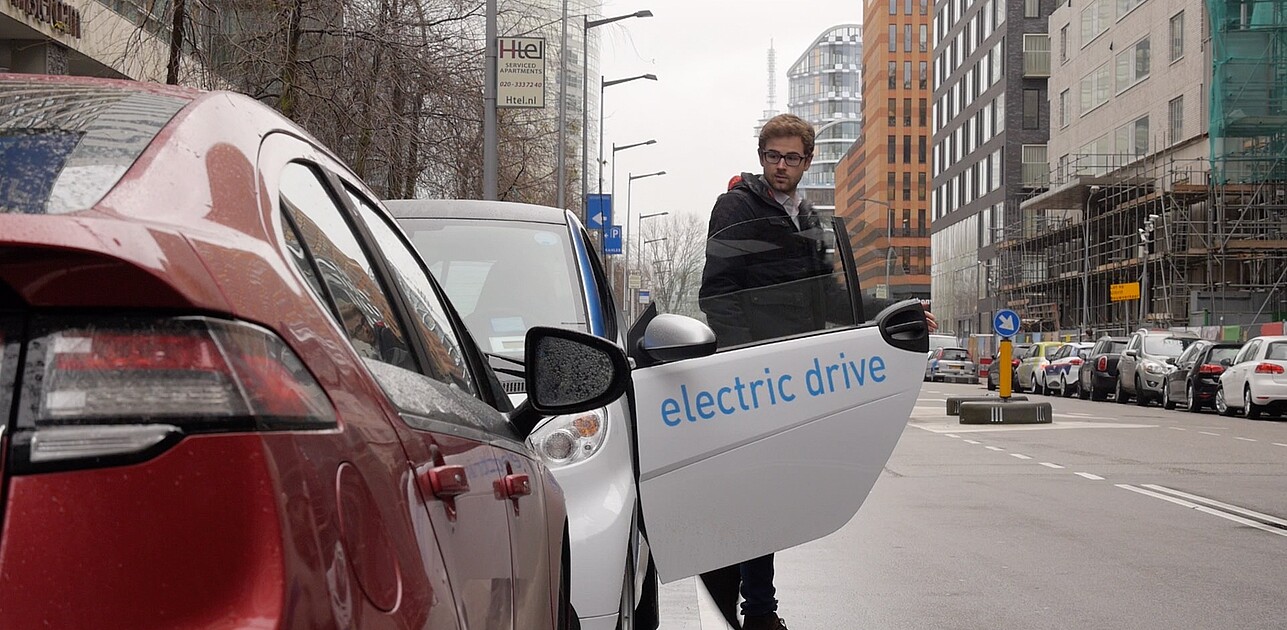

Video: Friday, 18 December 2015
During the 2015 UN Climate Change Conference in Paris, it was agreed that global warming must stay under 2 degrees Celsius. To achieve this, countries will have to speed up the transition to renewable energy sources. The traditional power grid in its current state is not up to the task of storing and distributing the variable supply of wind and solar power. Other solutions are needed, say Professor Wolf Ketter and PhD candidate Micha Kahlen from Rotterdam School of Management, Erasmus University (RSM). They developed a software algorithm that can pool batteries in rental electric vehicles (EVs) together and turn them into ‘virtual power plants’ that can store electricity at peak production times and sell back when the price is right. Ketter and Kahlen’s research demonstrates that fleet operators can make an additional profit from running such a virtual power plant.
Obviously a rental car is most profitable when actually rented out. Vehicles that are recharging usually only cost the company money. So, the first challenge for Prof. Ketter and Kahlen was to determine how many electric vehicles can be withdrawn from rental services at any given time to become part of the virtual power plant.
The researchers collected and analysed GPS-data from an existing fleet of rental cars in several big cities. The resulting model can now successfully predict how many electric vehicles will be rented out within 15 minutes. This real-time accuracy is important: the rental company does not want to disappoint clients by saying there are no EVs available. On the other hand, once a certain number of cars has been committed to the virtual power plant, it would be breach of contract with the electricity company to rent them out at last-minute notice.
Kahlen and Ketter’s research shows that fleet operators running a virtual power plant today can expect to see their profits increase with seven per cent. Most of that profit comes from absorbing excess peak power from the traditional power grid at low prices. They found that selling electricity back to the grid was only profitable during short time periods, for example in the afternoon around 16:00 when demand for electricity is high and electricity prices rise.
The researchers expect profits from virtual power plants to grow in the future. Constantly improving battery technology will make batteries cheaper to operate and the gross additional profit from virtual power plants may be as high as 12 per cent in 2022. Kahlen and Ketter also predict that by 2022 so many people will have an electric vehicle that virtual power plants can start selling back to the grid and may even replace traditional power plants devoted to generating power at peak moments.


Science Communication and Media Officer
Rotterdam School of Management, Erasmus University (RSM) is one of Europe’s top-ranked business schools. RSM provides ground-breaking research and education furthering excellence in all aspects of management and is based in the international port city of Rotterdam – a vital nexus of business, logistics and trade. RSM’s primary focus is on developing business leaders with international careers who can become a force for positive change by carrying their innovative mindset into a sustainable future. Our first-class range of bachelor, master, MBA, PhD and executive programmes encourage them to become to become critical, creative, caring and collaborative thinkers and doers.
